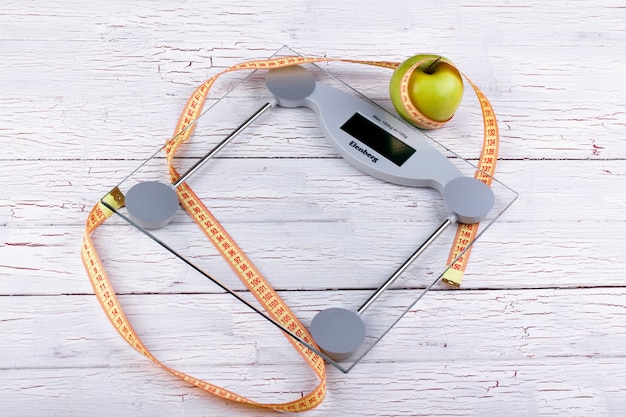
If you’re looking to lose weight, you might think counting calories and eating less is the way to go. However, Terry Fairclough, a personal trainer and co-founder of Your Body Programme, suggests that might not always be the best approach.
Many people believe in calorie counting, low-fat diets, or eating small, regular meals for weight loss. But although a big calorie deficit can lead to weight loss, it may not result in fat loss, which is what most people aim for. Extreme calorie restriction can cause your body to hold onto fat while breaking down protein instead.
In today’s world, the typical Western diet is often larger than necessary, so a slight calorie reduction could be beneficial for some. However, reducing calories too much is not recommended because the body begins losing stored carbohydrates and water, not fat. Long-term calorie restriction can also make your body hold onto its fat stores while breaking down muscle proteins.
The body uses glucose, broken down from carbohydrates, as its main energy source. When not needed immediately, glucose is stored as glycogen in muscles and the liver. Cutting calories primarily causes a loss of this stored glycogen and its attached water molecules, not the fat many are hoping to lose. Furthermore, a prolonged calorie deficit can alarm the body, causing it to hold onto fat and consume protein sources instead.
Healthy diets should provide enough calories and include all three macronutrients: fats, carbohydrates, and proteins. Fats, in particular, are essential as they provide a more abundant energy source than carbohydrates or proteins and are stored within muscle fibers for use during exercise. Cutting out fats completely can leave you feeling out of energy, making it harder to lose unwanted fat.
Restricting calories and nutrients too harshly can lead to deficiencies that impact essential bodily systems, including immune and digestive functions. This can have broad health impacts like fatigue, malnutrition, and hormonal imbalances. Moreover, stress from calorie restriction results in cortisol release, which may initially cause weight loss but can lead to increased fat storage, especially in the belly, over time.
Other potential problems include a slowed metabolism from protein breakdown, reduced thyroid function affecting metabolism, and impaired digestion. All of this can hinder your efforts to lose weight or fat effectively. Lack of proper nutrition and rest might also disrupt sleep, affecting overall health, liver detoxification, and physical performance.
Some bodybuilders restrict calories intensely to prepare for competitions but often increase their intake afterward. Incorrect calorie cycling can lead to health issues. Over time, continuous calorie cutting can disrupt metabolic function, making weight loss difficult because the body transitions into survival mode, storing more fat.
Ultimately, it’s important to eat the right amounts of calories, fats, carbs, and proteins suited to your specific body type, goals, and lifestyle. The Your Body Programme helps individuals identify their caloric needs based on these factors, emphasizing the importance of a balanced diet without unnecessary calorie restrictions. Eating enough lean proteins, healthy carbohydrates, and fats is crucial for maintaining energy and optimizing body function.
Terry Fairclough, with experience in both personal training and nutritional therapy, advocates for a balanced approach to health where increasing calories, not restricting them, has proven successful in losing fat and staying fit.




